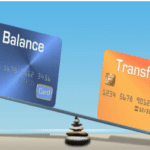The Impact of Credit on Car Loans and Leases
When purchasing or leasing a vehicle, your credit score plays a crucial role in determining the terms of your financing. Whether you’re looking for a car loan or a lease, your credit history can affect everything from interest rates to down payment requirements. Understanding how credit impacts car loans and leases can help you make more informed financial decisions and potentially save you thousands of dollars.
How Credit Affects Car Loans
A car loan is a type of installment credit where you borrow a fixed amount and repay it over a set period with interest. Your credit score influences key aspects of your loan, including:
1. Interest Rates
Lenders use your credit score to assess risk. Higher credit scores typically result in lower interest rates, meaning you pay less over the life of the loan. On the other hand, borrowers with lower credit scores often face higher interest rates, leading to significantly increased costs.
2. Loan Approval and Amount
A strong credit score increases your chances of loan approval and may qualify you for a larger loan amount. Those with poor credit may need to provide a co-signer or a higher down payment to secure financing.
3. Loan Terms
Borrowers with excellent credit may have access to longer repayment terms with favorable conditions. However, those with lower credit scores may be offered shorter terms or less flexible repayment options.
How Credit Affects Car Leases
Leasing a car involves making monthly payments to use a vehicle for a set period, typically two to four years. Just like with car loans, credit plays a significant role in lease agreements.
1. Lease Approval
Leasing companies have credit score requirements, and higher scores improve your chances of approval. Lower scores might result in rejection or require a higher upfront payment.
2. Money Factor (Interest Rate Equivalent)
The “money factor” is the leasing equivalent of an interest rate. A good credit score leads to a lower money factor, reducing the overall cost of leasing. Poor credit can result in much higher monthly payments.
3. Security Deposits and Down Payments
If you have a lower credit score, leasing companies may require a larger security deposit or down payment to offset the risk.
Improving Your Credit for Better Car Financing
If your credit score is less than ideal, consider these steps before applying for a car loan or lease:
- Check Your Credit Report: Review your credit report for errors and dispute any inaccuracies.
- Pay Bills on Time: Your payment history is the most significant factor in your credit score.
- Reduce Debt: Lowering your credit utilization can improve your score.
- Avoid New Credit Inquiries: Too many hard inquiries in a short time can lower your score.
Final Thoughts
Your credit score directly impacts your ability to secure a car loan or lease with favorable terms. By maintaining good credit and understanding how it affects financing, you can make smarter financial decisions and potentially save a significant amount of money. Before making a purchase or lease, take the time to review your credit and explore ways to improve it if necessary. A little preparation can go a long way in securing the best deal possible.




